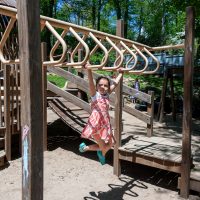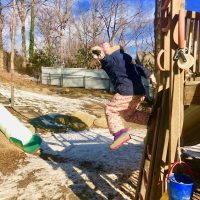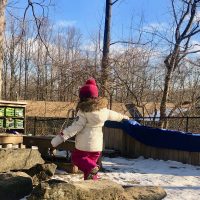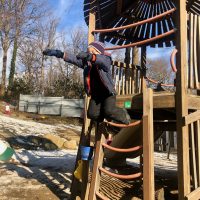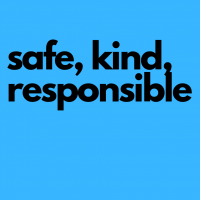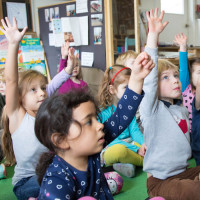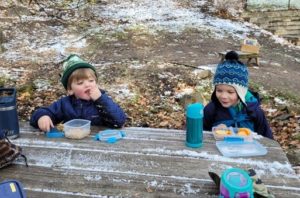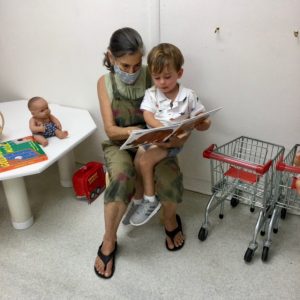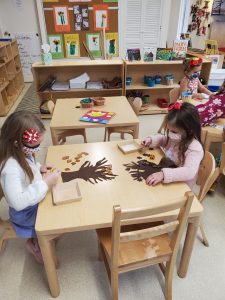
Preschoolers are often dare-devils and thrill-seekers who naturally test the limits of what’s possible at home, at school and on the playground. It’s what they do.
As parents, our instinct to keep our children safe prompts us to caution our little risk-takers to Be careful! Slow down! Get down! – or the easiest option – No!
At CCNS, we seek to offer children the “yes” that allows them to safely test their limits and take acceptable risks that will make them more experienced, confident, and resilient in the long run.
If a child wants to climb the big rocks, we encourage them to have their “hands out, and be ready to fall.”
If a child wants to build a block tower beyond their reach, we encourage them to ask an adult for support while they climb onto a chair to add blocks to the top.
Children are allowed to use real tools at the workbench provided they wear googles and their work is supervised by an adult.
The philosophy of saying “yes” whenever possible works in tandem with helping children learn what it means to “be safe”.
As one of our three core behavioral expectations in the classroom, “be safe” means we take care of ourselves. “Be safe” is an intuitive concept for preschoolers; it’s positive and simple vocabulary that children can both say and understand. We use the words be safe every day in many ways in the classroom and on the playground:
We remind the children that our rules are designed to keep them safe and praise them by specifically calling out how their actions are keeping themselves and others safe.
We model being safe, and ‘think out loud’ as we show them what being safe looks like. We may narrate our actions with ‘Hmm, someone trying to get through this area where I am building might trip on these blocks. I’m going to move them over here to make a safe path. Would you help me?”
And when we need to ask our little risk takers to stop doing something, we specifically call out why their behavior is not safe, such as “Walk with that stick. Running with a stick is not safe”
Applying our school’s core behavioral expectation consistently and using the words be safe as a universal language around behavior every day has helped teachers and working parents provide the children with consistent guidance and positive (re)direction. What’s more, it’s given the kids a common vocabulary that they all understand and can use to describe their behavior and that of their friends. For example, when one child tells another “don’t do that, it’s not safe” instead of just saying “stop it”, the child almost always achieves a better, quicker result and in turn feels more empowered to advocate for themselves and solve problems independently.
At CCNS, we strive to offer a safe environment where we say “yes” to opportunities for children to test their physical and mental limits through active play every day. Reasonable risk-taking is an important part of childhood and a critical aspect of healthy social-emotional development that results in the ability to share original ideas, investigate, experiment, invent and accept failure as a learning experience.
We encourage and empower CCNS children to be adventure-seekers, dare-devils and risk-takers… as long as they honor our school value of being safe and they are prepared… with their ‘hands out, ready to fall”.

